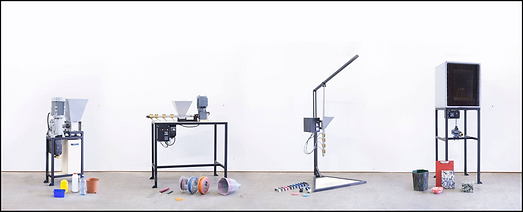
Precious Plastics
Sustainable Recycling Program for Rural Haiti: Transforming Plastic Waste into Useful Materials to Alleviate Poverty and Environmental Hazards
Introduction:
The recycling program is aimed at providing a sustainable solution to the environmental and health hazards associated with improper disposal of plastic waste in rural Haiti. This program will also help to alleviate poverty by providing an income source for the local community. The poverty numbers in Haiti will be taken into consideration to ensure affordability and accessibility.
Plan Overview:
The recycling program will consist of four tiers; collection, sorting and storage, transformation, and redistribution. The transformation phase will utilize DIY machines from Precious Plastics that shred and mold plastic waste into useful materials.
Transforming Plastic Waste in Rural Haiti: A Sustainable Recycling Program




Tier 1: Collection
The first tier of the program will involve the collection of plastic waste from households and public areas in the rural communities. This will involve creating designated collection points for plastic waste, which will be easily accessible to the community. Collection will be done by the community members themselves, who will be trained and incentivized to bring in plastic waste to the collection points.


Tier 2: Sorting and Storage
The second tier of the program will involve the sorting and storage of the collected plastic waste. The plastic waste will be sorted based on its type and color to ensure uniformity of the materials. Sorting will be done at the designated collection points, and storage will be done in a central location, preferably near the transformation site.
Tier 3: Transformation
The third tier of the program will involve transforming the plastic waste into useful materials. This will be done using the Precious Plastics DIY machines, which are designed to shred and mold plastic waste into useful products such as furniture, construction materials, and household items. The transformation process will be done by trained community members who will be provided with the necessary equipment and tools.


Tier 4: Transformation
The final tier of the program will involve the redistribution of the transformed materials back to the community. The transformed materials will be sold at an affordable price to the community members, who will use them for their personal use or for sale to other members of the community. The income generated from the sale of the transformed materials will be used to sustain the program and provide incentives to the community members who participate in the program.
Impact:
The recycling program will have a positive impact on the environment by reducing the amount of plastic waste that is disposed of improperly, thereby reducing the health hazards associated with plastic waste in rivers and other areas. The program will also have a positive impact on the local economy by providing a source of income for the community members, especially those living below the poverty line. The affordability and accessibility of the program will ensure that even the poorest members of the community can benefit from it.
Conclusion:
The recycling program is a sustainable solution to the environmental and health hazards associated with improper disposal of plastic waste in rural Haiti. The program will also help to alleviate poverty by providing an income source for the local community. By utilizing Precious Plastics DIY machines, the program will be able to transform plastic waste into useful materials that can be sold at an affordable price to the community members. The program will have a positive impact on the environment and the local economy, and it is an important step towards building a sustainable future for rural Haiti.
Experience Haiti Christian Development Fund
Working Towards a Brighter Future
By investing in education, we can break the cycle of poverty that traps so many families and communities. Sponsorship provides students with access to quality education, resources, and support, empowering them to achieve their full potential and create a brighter future for themselves and their communities. Responsible sponsorship ensures that students are supported in a way that preserves their dignity and autonomy, without creating dependencies or perpetuating harmful stereotypes.








